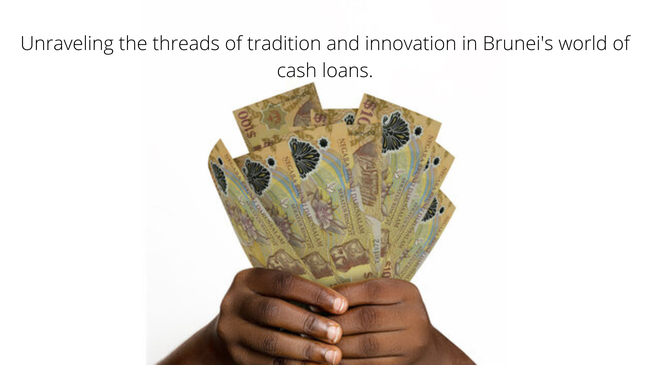Introduction
Brunei, often referred to as the 'Abode of Peace,' is a nation that seamlessly blends rich tradition with modern sensibilities. With its serene mosques, lush rainforests, and the regal splendor of the Sultan's palace, the country seems to hold within its borders an ancient serenity. Yet, this Southeast Asian gem is also an economic powerhouse, with oil and gas reserves that have catapulted it to the global forefront.
However, this juxtaposition of cultural tradition and economic prosperity becomes even more evident when one delves into the realm of Brunei's financial sector. Within the modern skyscrapers and bustling business districts, there exists a banking and lending system deeply rooted in centuries-old Islamic principles. It's a world where Shariah law dictates the flow of money, where interest, a cornerstone of Western banking, is viewed through a lens of prohibition, and where financial practices are as much about faith and ethics as they are about profit.
In this exploration of cash loans in Brunei, we embark on a journey through time and tradition. We'll navigate the waters of Islamic banking, discover how a nation so rich in oil wealth approaches lending, and uncover the challenges and opportunities that arise when age-old values meet the demands of a 21st-century economy.
Historical Framework
Brunei's financial practices are deeply influenced by its adherence to Islamic principles. Shariah law, which governs various aspects of life including financial transactions, prohibits Riba (interest). Therefore, traditional forms of lending that rely on charging interest don't find a place in Brunei’s banking landscape. However, this hasn't stopped the evolution of a dynamic financial sector.
Historical Facts
Early Financial Systems
Prior to oil discovery, Brunei's economy was largely agrarian, and community-based lending was prevalent, often without interest.
Oil Boom and Modern Banking
With the discovery of oil, Brunei's economy underwent a seismic shift. With rapid modernization, there was a need for sophisticated financial systems. However, the principles of Islamic finance were maintained, leading to the establishment of Islamic banks offering Shariah-compliant loans.
21st Century Shifts
As global finance evolved, Brunei kept pace, offering products like Murabaha (cost-plus financing) and Ijarah (leasing), which align with both modern financial needs and Islamic principles.
Advantages
Ethical Lending
Shariah-compliant loans ensure ethical lending practices where both lender and borrower share risk.
Stable Economy
Brunei's oil-backed economy provides stability, and this translates to a reliable financial sector.
Diverse Loan Products
Despite the prohibition of interest, there's a diverse range of Islamic loan products available to cater to varied needs.
Disadvantages
Limited Traditional Loans
Those unfamiliar with Islamic banking might find the absence of conventional interest-based loans limiting.
Smaller Market
Brunei's small population can mean fewer financial products when compared to larger markets.
Trends and Patterns
Rise of Fintech
Digital banking and online loan applications are gaining traction in Brunei, though they still operate within Shariah guidelines.
Diversification
With the global push to move away from fossil fuels, Brunei's financial sector is exploring avenues outside of oil, leading to new loan products and services.
Tips
Know the Principles
Before taking a loan in Brunei, familiarize yourself with Islamic financial principles to make informed decisions.
Explore Options
While the market might seem limited, there's still a variety of loan products available. Do your research.
Consult Experts
Given the uniqueness of Brunei's financial landscape, seeking advice from financial experts can be beneficial.
Curiosities
Shared Risk
In Islamic finance, the concept of shared risk means that banks often invest alongside borrowers rather than merely lending money.
Zakat
An essential principle of Islamic finance, Zakat is a form of almsgiving. Financial institutions in Brunei often have provisions for it, emphasizing the community's welfare.
Conclusion
In the heart of Southeast Asia, Brunei stands as a testament to the powerful confluence of cultural heritage and contemporary economic dynamism. The landscape of cash loans in the country, dictated by Shariah principles, symbolizes a broader narrative of Brunei's journey. It's not just about finance; it's about the nation's unwavering commitment to its values and ethics, even in the face of global economic pressures.
Over the years, the country has shown that it is entirely possible for modern financial mechanisms to exist and thrive without compromising core beliefs. While the absence of traditional, interest-based lending might appear as a limitation on the surface, it has led to the creation of innovative and ethical financial solutions. Solutions that not only serve the immediate financial needs of the people but also ensure longer-term community welfare and economic sustainability.
As the global financial landscape becomes more interconnected, and as ethical considerations become central to global banking practices, Brunei's model of Shariah-compliant lending offers valuable lessons. It shows that finance can be both progressive and principled, that economic prosperity doesn't have to come at the cost of ethical compromises, and that even in the high-stakes world of money, tradition can hold its ground.
As we look to the future, with the rapid digitization of finance and the emergence of new economic challenges, Brunei's approach to cash loans will likely continue to evolve. Yet, one thing remains certain: the country's foundational commitment to its values will continue to guide its path, ensuring that its financial sector remains a beacon of ethical and innovative practices in the world.

